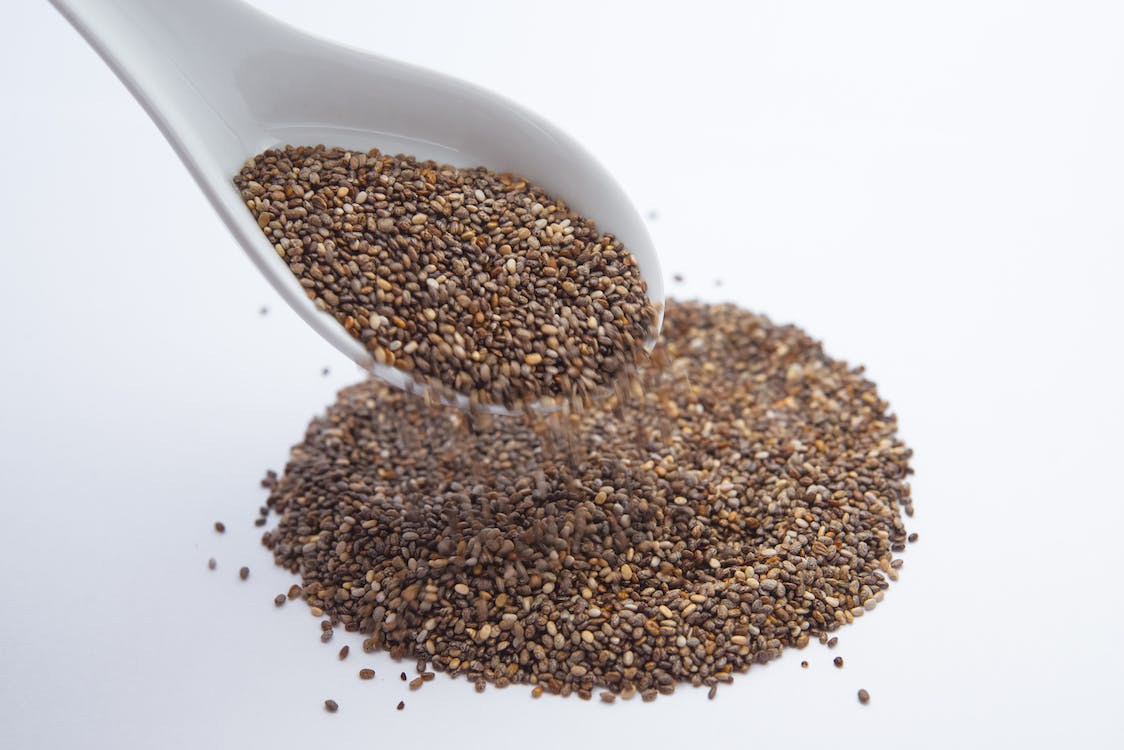
Discover the extraordinary power packed within these tiny seeds as we dive into their nutritional wonders. Uncover the secrets of chia seeds, celebrated for their rich omega-3 fatty acids, fiber, and protein content, making them a nutritional powerhouse.
Let’s explore the many health benefits of chia seeds, from supporting heart health to aiding digestion and weight management. Learn how these tiny seeds can greatly impact your overall well-being. Join us on this insightful exploration of ‘Tiny Seeds, Big Impact,’ and empower yourself with the knowledge to enhance your health by simply adding chia seeds to your lifestyle.
Key Vitamins In Chia Seeds
- Vitamin A: Essential for vision, immune function, and skin health.
- Vitamin B1 (Thiamine): Supports energy metabolism and the nervous system.
- Vitamin B2 (Riboflavin): Important for energy production and the metabolism of fats.
- Vitamin B3 (Niacin): This plays a role in energy production and helps maintain skin health.
- Vitamin B5 (Pantothenic Acid): Involved in the synthesis of fatty acids and energy production.
- Vitamin B6 (Pyridoxine): Necessary for the metabolism of amino acids and the production of neurotransmitters.
- Vitamin B9 (Folate): Important for DNA synthesis and cell division.
- Vitamin C: An antioxidant that supports the immune system and helps with collagen synthesis.
- Vitamin E: An antioxidant that protects cells from damage and supports skin health.
- Vitamin K: Essential for blood clotting and bone health.
Health Benefits Associated With Chia Seeds
- Rich in Nutrients: Chia seeds are packed with essential nutrients, including omega-3 fatty acids, fiber, protein, vitamins (A, B1, B2, B3, B5, B6, B9, C, E, and K), and minerals (calcium, phosphorus, potassium, zinc, and magnesium).
- Heart Health: The omega-3 fatty acids in chia seeds, particularly alpha-linolenic acid (ALA), may help reduce the risk of heart disease by lowering cholesterol levels and blood pressure.
- Weight Management: The high fiber content in chia seeds can contribute to a feeling of fullness, potentially aiding in weight management by reducing overall calorie intake.
- Blood Sugar Regulation: Chia seeds may help regulate blood sugar levels due to their high fiber and protein content, potentially benefiting individuals with diabetes.
- Digestive Health: The soluble fiber in chia seeds forms a gel-like substance when mixed with liquid, promoting healthy digestion and preventing constipation.
- Bone Health: Chia seeds are a good source of calcium, phosphorus, and magnesium, contributing to bone health and density.
- Antioxidant Properties: Chia seeds contain antioxidants that help neutralize free radicals, protecting cells from damage and supporting overall health.
- Hydration: Chia seeds can absorb many times their weight in water, forming a gel that helps maintain hydration and electrolyte balance.
- Energy Boost: The combination of protein, healthy fats, and carbohydrates in chia seeds can provide a sustained energy release, making them a good option for athletes or those needing an energy boost.
- Anti-Inflammatory Effects: Some studies suggest that the omega-3 fatty acids in chia seeds may have anti-inflammatory properties, potentially benefiting conditions related to inflammation.
- Improved Skin Health: The vitamins and antioxidants in chia seeds may contribute to healthier skin by protecting against oxidative stress.
- Regulation of Cholesterol Levels: Chia seeds may help reduce levels of “bad” LDL cholesterol while increasing levels of “good” HDL cholesterol.
How Much Chia Seeds Do I Need?
The recommended amount of chia seeds per day can vary based on individual health, dietary goals, and overall nutritional intake. However, a general guideline for adults is around 1 to 2 tablespoons of chia seeds per day.
Here are some tips for incorporating chia seeds into your diet:
- Soak chia seeds in water or another liquid for a few hours or overnight before consuming. This allows them to absorb liquid and form a gel-like consistency.
- Mix chia seeds into yogurt, oatmeal, cereal, or smoothies. The seeds will absorb the liquid in these foods, providing a pleasant texture.
- Incorporate chia seeds into recipes for baked goods, like muffins or bread.
- Stir chia seeds into beverages like juice or water. Allow them to sit for a few minutes to absorb the liquid.
As you embark on your journey to harness the incredible benefits of chia seeds, remember that balance is key. Incorporate these tiny nutritional powerhouses into your daily routine with creativity and mindfulness. Whether you’re seeking heart health, digestive wellness, or a nutrient-packed energy boost, chia seeds offer a versatile and delicious solution.
As with any dietary changes, it’s always wise to consult with healthcare professionals or nutrition experts, especially if you have specific health considerations. Here’s to your health, vitality, and the countless benefits that chia seeds can bring to your life. Cheers to wellness, one seed at a time!”











Leave a Comment